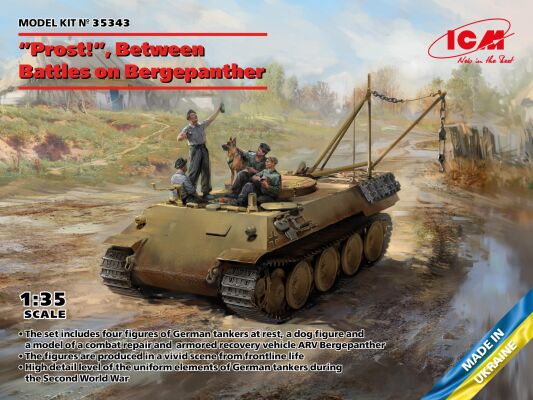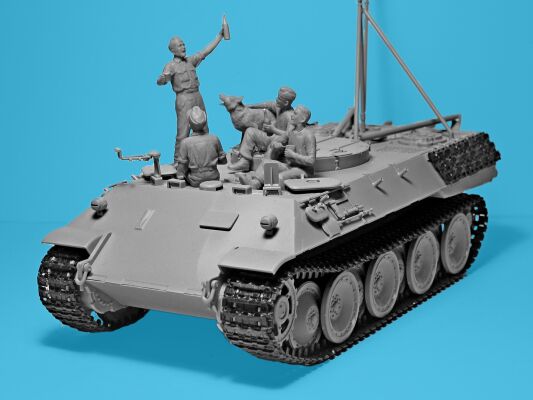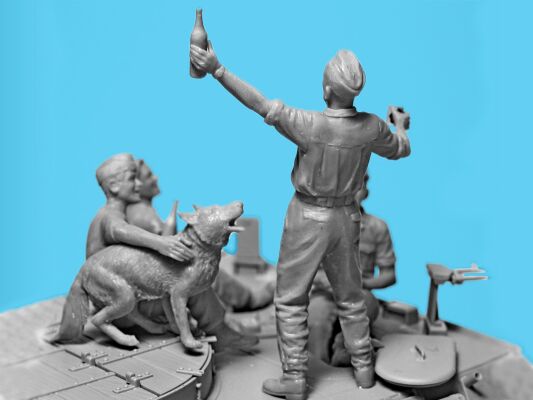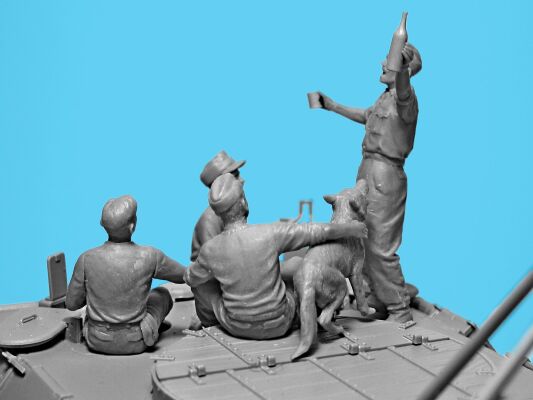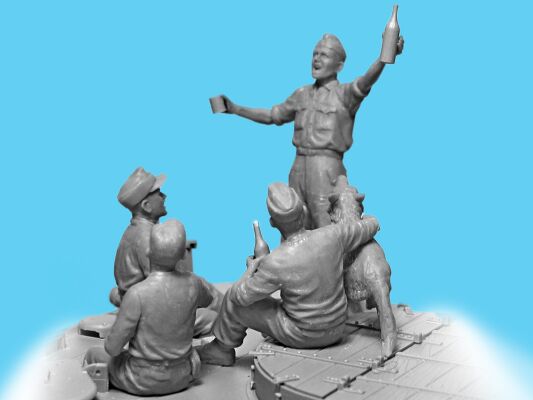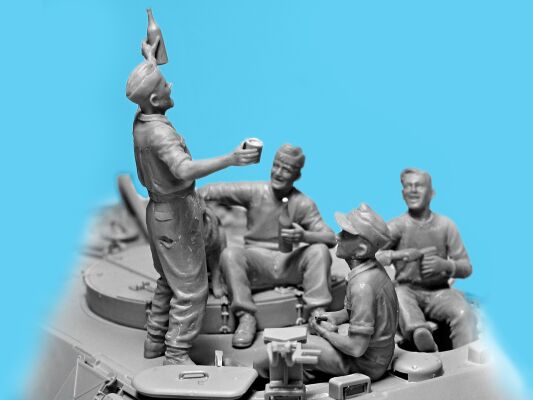Description
Scale model 1/24 BREM with German tankers "Prost!", between battles on the Bergepanther ICM 35343 with delivery throughout Ukraine and to stores in Kyiv and Odessa.
Glue and paints are not included.
The kit includes:
sprues with parts
model painting scheme
detailed instructions
The harsh living conditions during military operations, constant nervous tension and stress experienced by most Wehrmacht soldiers required a certain mental release. One of these methods was drinking alcohol. In his memoirs, former Wehrmacht soldier Guy Seyer noted: “There is as much vodka, schnapps and liqueurs at the front as there are machine guns. It is easier to make a hero out of anyone.” Alcohol could also reduce the pain of the wounded. The main alcoholic drink in the Wehrmacht was schnapps, and German soldiers, especially tankers, could also be given liqueurs. Officers often had captured French cognacs or wines, which were captured in such large quantities that they consumed them even when sur
